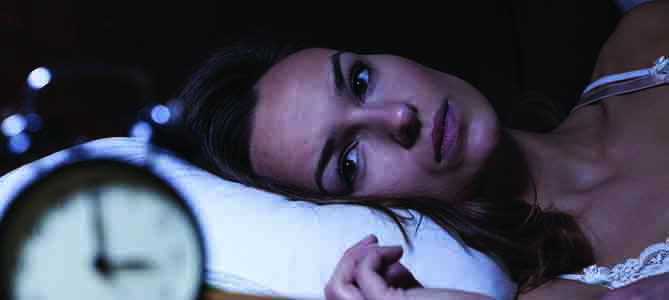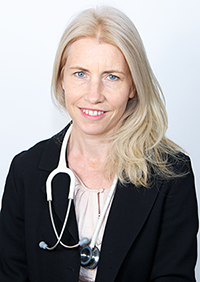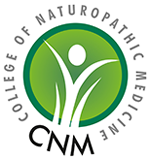Can’t Sleep

 Dr Laura Quinton, GP and CNM Graduate in Naturopathic Nutrition, shares her personal experience of coming to realise the link between insomnia and nutrition.
Dr Laura Quinton, GP and CNM Graduate in Naturopathic Nutrition, shares her personal experience of coming to realise the link between insomnia and nutrition.
Not only do I see a lot of patients in my surgery suffering with poor sleep, but I also suffered with insomnia myself for years. Things changed for me when I learnt about nutrition and functional medicine at CNM. My sleep improved and I felt a whole lot healthier.
Poor sleep is associated with many aspects of ill health such as heart disease, poor immunity and insulin resistance. It also affects your life and you can get stuck in a rut and make poor lifestyle choices. You might be too tired to exercise. You reach for comfort food to give yourself a boost because you just feel too tired to cook from fresh. These habits keep you in a poor sleep-exhaustion cycle.
I was a doctor who, along with my colleagues, understood next to nothing about the impact of nutrition on health because it had never been a significant part of our training. I thought that stress and lifestyle were the driving forces behind insomnia.
Sleep Hygiene
Fast forward to my discovery of nutrition and functional medicine. As well as being taught about the effect of diet on sleep, I also discovered sleep hygiene. Sleep hygiene involves stopping the use of electronics a couple of hours before bed, making sure the room you sleep in is warm but not hot, and keeping your bedroom well ventilated. Keeping lights as low as possible and making sure the room is as quiet and dark as you can make it, helps. Use aromatherapy oils such as lavender and chamomile in the room and in warm baths. Use all of the senses to help relaxation.
Sugar
Then there is food. Sugar rushes and carb cravings upset your blood sugar balance. This all-day blood sugar rollercoaster prevents relaxation, even though it might feel like a quick fix at the time to raise energy. Understanding this was the key to me curing my insomnia. Maintaining stable blood sugar levels through the day is important. Swapping out processed carbs like white bread and pasta with whole grain brown and wild rice can help.
Starting the day well on porridge oats made with water with a few nuts and berries can keep your blood sugar on track from first thing in the morning. I started batch cooking and taking in my own homemade soup for lunch instead of relying on shop-bought sandwiches and crisps.
I also discovered that I was low in magnesium, a mineral essential for muscle relaxation and “winding down”. Magnesium can be depleted by alcohol, low levels of vegetables in the diet and a busy lifestyle. It is now thought that up to 80% of people living in the UK may have suboptimal levels of magnesium and it can certainly contribute to insomnia. Because most magnesium is in your body cells, there is no actual blood test to see if you are low, but there is functional testing.
Eating a portion a day of leafy green vegetables, helped me not only get the fibre I needed to sustain blood sugar, but also gave me my “fix” of magnesium. In the beginning I also took a magnesium supplement.
When I was a student at CNM one of the nutritionists gave me a bedtime smoothie recipe which included cherries. Cherries can boost melatonin, the hormone that regulates the sleep–wake cycle. I also tried Ayurvedic medicine and added a teaspoon of powdered Ashwagandha to my smoothie.
I have absolutely no doubt that it was the changes to my diet that cured my sleep problems. I still have the busy lifestyle and the stress. Having a good night’s sleep helps me take it all in my stride and I feel a whole lot better! I’ve seen improvements in my blood pressure, too. Food is really the best medicine for sleep, backed up by “sleep hygiene” as mentioned above.
In my opinion, the future of medicine is nutrition, preferably from a naturopathic angle, which addresses the triggers and empowers the patient to take more responsibility for improving their health.
 CNM (College of Naturopathic Medicine) trains students for careers in natural therapies, and offers short courses.
CNM (College of Naturopathic Medicine) trains students for careers in natural therapies, and offers short courses.
CNM Bristol are holding their next Open Evening on Wednesday 6th February 2019 from 6.30pm-8.30pm.
Click here to book your free ticket:
https://www.eventbrite.co.uk/e/cnm-bristol-free-open-evening-registration-54640013752
